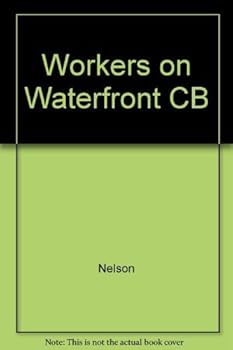Workers on the Waterfront: Seamen, Longshoremen, and Unionism in the 1930s
(Part of the The Working Class in American History Series)
Select Format
Select Condition 
Book Overview
With working lives characterized by exploitation and rootlessness, merchant seamen were isolated from mainstream life. Yet their contacts with workers in port cities around the world imbued them with... This description may be from another edition of this product.
Format:Hardcover
Language:English
ISBN:0252014871
ISBN13:9780252014871
Release Date:December 1990
Publisher:University of Illinois Press
Length:352 Pages
Weight:1.50 lbs.
Dimensions:6.0" x 9.0"
Customer Reviews
1 rating
a must read for labor historians
Published by Thriftbooks.com User , 23 years ago
If you got to this review, buy this book. There are a few problems. Nelson could have spent more research taking the longshoremen's perspective into account. Nonetheless, his research is solid and this is a must for those interested in the Great Depression, San Francisco or labor history. Nelson account is the most complete research on the subject during this era. I only wish he had devoted more time to the East Coast.





